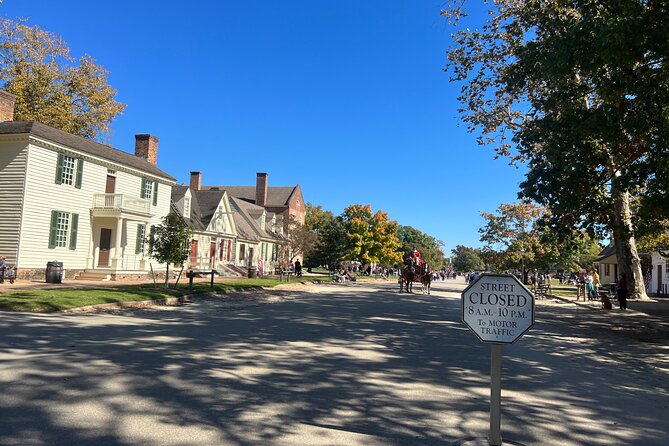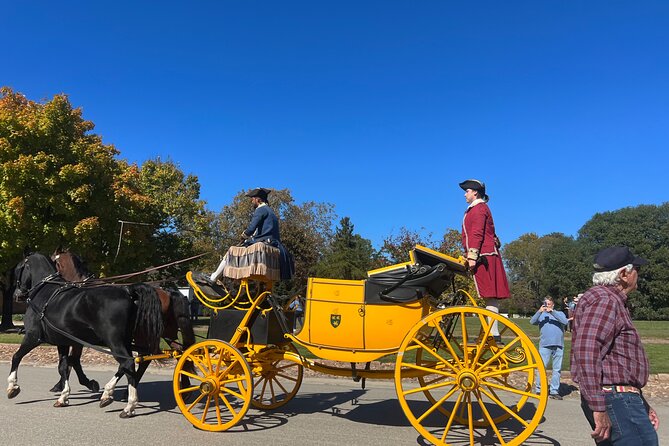Colonial women’s lives were far more complex than the traditional domestic roles often portrayed. They managed households, tended gardens, and produced textiles – yet their economic contributions and intellectual pursuits frequently went unnoticed. These women navigated societal norms, sometimes defying expectations as they shaped religious practices within their communities. Their stories reveal an untold tapestry of resilience and agency that challenges common historical narratives.
Key Points

- Colonial women played crucial, yet often unrecognized, roles in managing domestic tasks, contributing to economic livelihood, and shaping religious practices.
- Despite social and legal constraints, colonial women demonstrated intellectual pursuits, asserting their economic agency through diverse occupations and household management.
- Engagement in spinning, weaving, and sewing for family clothing, as well as maintaining kitchen gardens and livestock, formed the foundation of colonial society.
- Upper-class women received more formal education, engaging in the study of languages, literature, history, mathematics, science, and philosophy.
- Colonial women exerted significant influence over family and community religious lives, instilling faith, leading household devotions, and participating in religious rituals.
Roles and Responsibilities of Colonial Women

Although frequently overlooked, colonial women played crucial roles in the daily operations of their households and communities. They were responsible for managing domestic tasks like cooking, cleaning, and childcare.
Many also contributed to the family’s economic livelihood by tending to vegetable gardens, raising livestock, and producing textiles.
Beyond the home, colonial women actively participated in their local churches and social organizations.
While their lives were often confined to the private sphere, the skills and labor of colonial women were essential to the survival and success of their families and communities.
You can also read our reviews of more tours and experiences in Williamsburg.
Domestic Life in the Colonial Era
The colonial household was the center of domestic life, where women oversaw a variety of essential tasks. They managed the home, prepared meals, preserved food, cared for the sick, and educated children.
Spinning, weaving, and sewing provided clothing for the family. Women also tended kitchen gardens, raised livestock, and maintained the household accounts. Their days were filled with an endless cycle of chores to sustain the family.
Yet, these hidden labors were crucial to the survival and success of colonial households. Women’s domestic roles were the foundation of colonial society, though their contributions often went unrecognized.
Education and Intellectual Pursuits of Colonial Women

Colonial women weren’t limited to just domestic tasks, as many engaged in intellectual pursuits and acquired significant levels of education for their time. Some studied languages, literature, and history, while others learned mathematics, science, and philosophy.
Many colonial women became skilled writers, poets, and playwrights, contributing to the cultural landscape of the era. Education varied by social class, with upper-class women receiving more formal instruction than their lower-class counterparts.
Despite these disparities, colonial women demonstrated a thirst for knowledge and a desire to cultivate their minds, challenging the notion of their confinement to the domestic sphere.
Religious Practices and Beliefs of Colonial Women

As colonial society was deeply rooted in religious beliefs, women played vital roles in shaping the religious practices and convictions of their communities.
They were responsible for instilling faith in their families, leading household devotions, and supporting the church through volunteering and charitable works.
Colonial women also participated in religious rituals and ceremonies, often holding positions of authority within their congregations.
Despite the patriarchal nature of colonial society, women exerted significant influence over the religious lives of their families and communities, contributing to the rich spiritual tapestry of the colonial era.
Economic Contributions of Colonial Women

Though often overlooked, colonial women made invaluable economic contributions to their households and communities. They engaged in diverse occupations, from farming and textile production to brewing and retail.
Many women managed their family businesses while their husbands were away, demonstrating entrepreneurial skills. Colonial women also contributed to the household economy through subsistence activities like cooking, sewing, and preserving food.
Their labor was essential to the survival and prosperity of colonial families. Despite facing social and legal constraints, colonial women found ways to participate in the colonial economy and assert their economic agency.
- Patriots Tour of Colonial Williamsburg or Williamsburg 101
- Colonial History Tour in Williamsburg Virginia
- Ultimate Pirate Walking Tour in Colonial Williamsburg
- Colonial Ghosts Ultimate Dead of Night Haunted Ghost Tour
- Exclusive Private Tour of Colonial Williamsburg and the College
- Taste of Williamsburg Food Tour by Junket
Social Norms and Expectations for Colonial Women

While colonial women demonstrated their economic prowess, they were also constrained by stringent social norms and expectations. Society demanded they adhere to traditional gender roles, prioritizing domestic duties and subservience to their husbands.
Women were expected to marry, bear children, and manage the household. Venturing beyond these boundaries was often frowned upon. Though some found ways to exert influence, colonial women’s lives were largely shaped by the patriarchal structures of the time.
Navigating these social constraints required careful negotiation, as they balanced their aspirations with the realities of their circumscribed position in colonial society.
Resistance and Rebellion Among Colonial Women

Despite the stringent social norms and expectations placed upon them, some colonial women actively resisted and rebelled against the patriarchal structures that sought to confine them.
Some organized secret meetings to discuss political issues and coordinate acts of civil disobedience. Others disguised themselves as men to participate in protests or engage in banned commercial activities.
Colonial women also leveraged their roles as wives and mothers to challenge the status quo, using their domestic influence to sway their husbands and sons.
Though facing severe consequences, these women found ways to assert their agency and push back against the limitations of their era.
Recap

Colonial women’s lives were far more dynamic than commonly portrayed. They played crucial roles in sustaining their families and communities, engaging in diverse economic activities, pursuing intellectual interests, and shaping religious practices – all while navigating societal constraints. Though often unrecognized, their resilience, creativity, and quiet acts of resistance laid the foundations of colonial society.
More Tour Reviews in Williamsburg
Not for you? Here's more things to do in Williamsburg we have recnetly reviewed
- Best Food Tours In Williamsburg
- Murder, Mayhem, and Scandal: 1-hour Historical Character Tour
- Private Colonial Williamsburg Christmas Holiday Decorations Walking Tour
- 2 Hours Private Williamsburg’s Culinary Trail: A Feast of Flavors
- What Says Virginia: A Question of Independence.
- A Womans Place in History
- Tales of Christmas Past and Present in Williamsburg
- Civil War Ghosts Tour Review
- Private Tour From Williamsburg to Monticello World Heritage Site
- Colonial Williamsburg Dead of Night Ghost Hunt With Equipment
- Williamsburg’s Winter Wonderland: A Historic Holiday Stroll
- Christmas on the Homefront Tour Review
